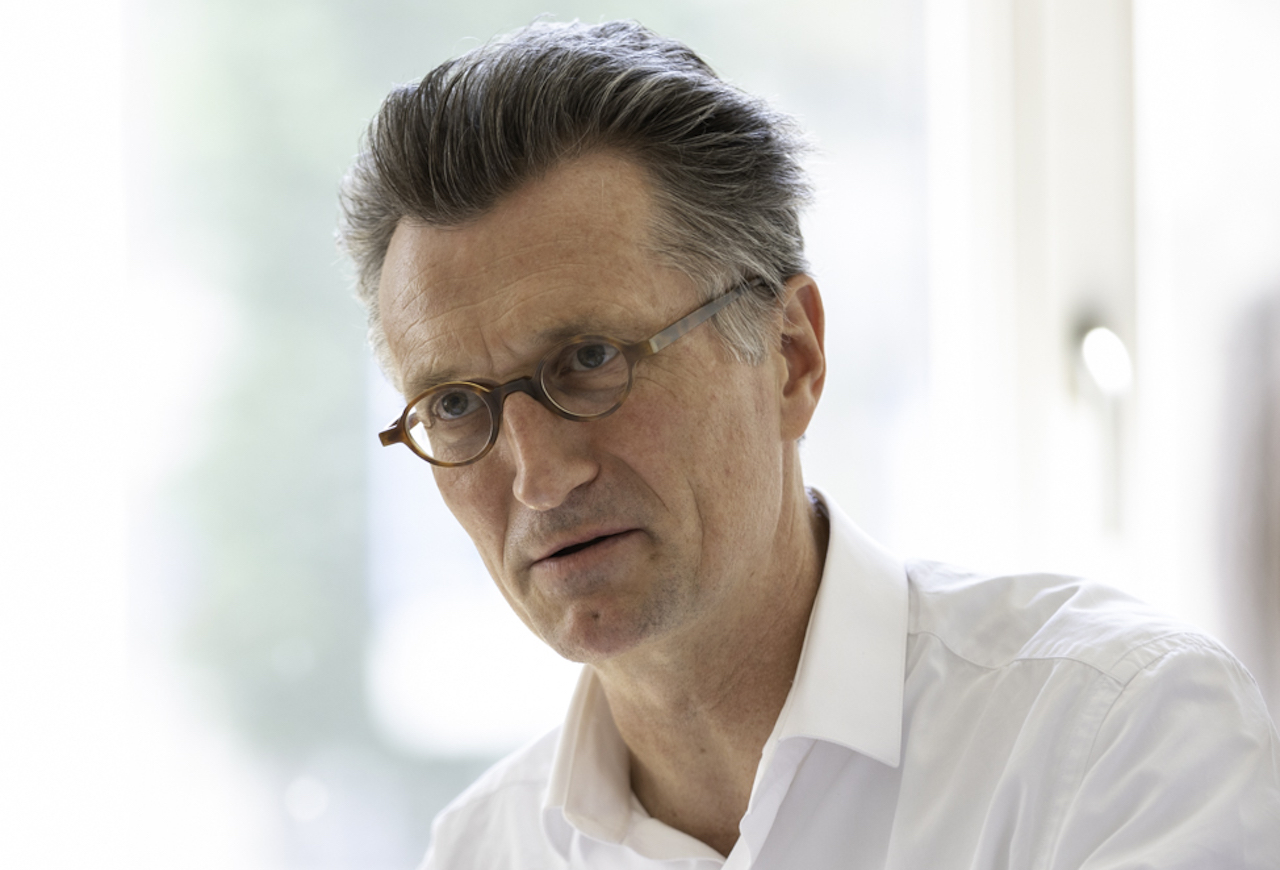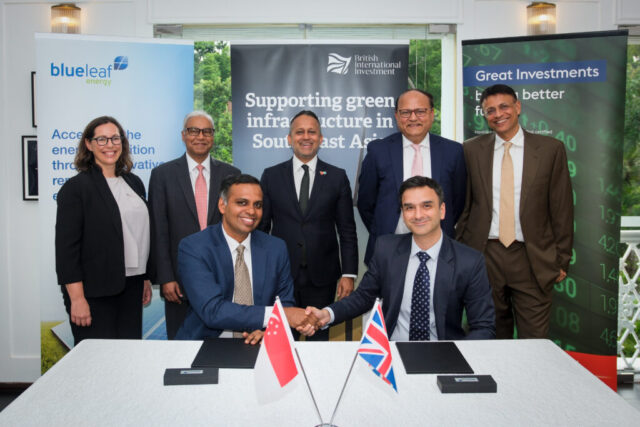The co-founder and chair of Impact Finance Belgium talks about the development of impact investing in the country and plans to accelerate growth of the sector in years to come.

CV
- Joins as co-founder and chair of the board at newly launched Impact Finance Belgium, January 2023-present
- Board member of the Impact Investing Institute, 2019-present
- CEO and later chairman of the board at the EVPA, 2016-2022
- Co-creator and strategic advisor at Ashoka, 2011-2015
- CEO of S&V Management Consultants, 1992-2011
Steven Serneels, co-founder and chair of Impact Finance Belgium (IFB), describes himself as an impact investor and serial entrepreneur, with an interest in combining “doing good with doing business” that he says dates back more than 20 years.
After selling his management consultancy in 2011, he decided to pursue this interest professionally, joining global NGO Ashoka as a strategic advisor, working alongside founder Bill Drayton and entrepreneur and innovator Valeria Budinich.
Shortly after leaving Ashoka, he joined the EVPA as board member, becoming CEO two years later, and then chairman of the board. It was towards the end of his time at the association, in 2021, that he realised there was an opportunity to establish a national organisation to accelerate the development of impact investing in Belgium, his native country.
Serneels, who has also been a board member of the UK’s Impact Investing Institute since 2019, says: “Whilst at the EVPA, I had the opportunity to take a closer look at the Belgian setting and I could see that there were some great examples of impact investing but no go-to place to bring like-minded investors together and build a community. With experience of the Impact Investing Institute in the UK and having had close contact with the other NABs across Europe, I could see how a national organisation could truly catalyse the local market.”
Belgian NAB
Work to launch a national organisation began in early 2022 to, as Serneels puts it, “sense-check the appetite in Belgium”, with three main objectives. These included the organisation of a week-long impact investment-focused event in November in partnership with the EVPA and Ashoka, and the launch of a market-sizing study, which was published to coincide with the event.
“With the study we wanted to understand how big the market was in Belgium, where the money was coming from, where the potential opportunities lay and what the bottlenecks were,” explains Serneels.
The third objective was to launch a permanent structure if the results from both the event and the study showed there was demand and an opportunity to grow the market. There was, and IFB was officially incorporated at the end of January this year.
Serneels says that the application to become part of the Global Steering Group’s (GSG) network of National Advisory Boards (NABs) has been submitted and that the IFB is already working with the GSG, although official incorporation into the network is scheduled for the end of this month.
Family offices pioneering impact in Belgium
The November study tfound that in 2021, the Belgian impact investment market was worth an estimated €6-16bn, representing around 1-2.5% of assets under management in the country.
Between 45-78% of these assets originate from investors dedicated to impact, including private funds, credit institutions, banks and microfinance institutions, while family offices account for 15% of the impact market, with pension funds lagging behind all the investment categories representing less than 1%.
“Although still very small, the Belgian impact investing market is bigger than many people anticipated and in line with the global size of the market, but the players are quite distinct,” says Serneels. “Unlike the Netherlands where pension funds are really pioneering impact investing, in Belgium they are barely discernible and it’s the family offices that are leading the charge, coming in second place behind the pure impact players.”
The study found that the Belgian market could more than double to over €30bn within the next three to five years and represent €60-80bn by 2030, a key objective of IFB.
“Our aim is to double the impact investing market in the next three years and reach about 10% of AUM in Belgium by 2030. But we also hope that by that time, 95% of all investments will be light green, meeting Article 8 criteria, and 50% will be green or dark green, meeting the requirements of Article 9. We want to play an instrumental role in that shift,” says Serneels.
Safeguarding impact integrity
Serneels explains that joining the NABs was also an important and necessary step for IFB if they wanted to have a say on the direction of regulation in Europe.
“Different countries in Europe are pursuing different avenues into impact but for us it’s important to be embedded in this European context,” he says. “A substantial portion of impact regulation will be defined at a European level. From the social taxonomy to SFDR and the rules around Article 8 and 9 funds, it is vitally important for us to be a part of the conversation, and as a member of the European NAB network, we will have a stronger voice to ensure that impact integrity is well guarded.”
Building on momentum
Serneels says the positive momentum built at their 2022 impact event has led to a steady influx of new and diverse members and financial supporters joining IFB, which include the King Baudouin Foundation, BNP Paribas, Belgium’s sovereign wealth fund SFPIM, the country’s largest independent asset manager Degroof Petercam Asset Management, Belgian DFI BIO Invest and the country’s largest impact investors Incofin, to name a few.
Serneels says the advantage of establishing a national organisation later than other countries, was the ability to learn from the strategies used elsewhere in Europe.
“By being late to the game, we have been able to observe how the UK NAB has brought mainstream finance into impact investing, whilst the French market has entered through the door of social investing. Our aim with Belgium, is to bridge the two by working with both social investors, who are often the engines of social innovation, as well as the more mainstream players, such as insurance companies, pension funds and banks that are serious about sustainable finance and can help to scale social innovation,” he says. “This is why our target audience is very broad and quite unique.”
The majority of impact investment in Belgium, around 78%, is made overseas although there are several players investing locally, albeit at a much smaller scale Serneels explains.
“The market is dominated by a small number of big players that invest tens of millions outside of Belgium, like Incofin which has recently launched a Water Access Acceleration blended finance fund aimed at improving access to safe drinking water in Asia and Africa, and BIO Invest, the Belgian DFI which supports sustainable development in developing and emerging countries,” he says. “But we also have fantastic organisations such as Trividend, who are investing in social enterprises in Belgium and exploring place-based impact investing, as well as Kampani, a blended social impact fund for small scale farming, but their ticket sizes are much smaller, in the hundreds of thousands. We will need new initiatives to grow the size of impact investing into Belgium itself.”
Serneels says that as well as exploring new initiatives, such as place-based impact investing, which has gained traction in the UK, or launching an equivalent to the 90/10 funds, which have driven retail impact investment in France, what the sector needed to grow and attract more mainstream financial players both in Belgium and elsewhere, was to extend beyond private equity, including into listed equities.
“Insurance companies and pension funds are more weary of private equity, because the ticket sizes are too small, there is less regulation and transparency and the perceived risk is higher. This is why as well as increasing the issuance of green bonds and green social bonds, we also need to make listed equities eligible for impact investing over time,” he adds.
Looking ahead
Serneels sees an important part of IFB’s work will be in policy and advocacy, influencing Belgian, and European, regulations to allow for greater retail as well as pension fund investment into the sector; peer learning, ensuring best practices receive greater visibility; research, with the planned launch of several new studies and working groups to advance distinct areas of impact investing; growing the membership of the organisation as well as creating transparency and a better understanding of the definition and standards around impact investing.
“As our mission statement says, we want to bring more effective impact capital to where it matters most. For us this is also about channelling capital to hard-to-crack social and environmental challenges, from biodiversity and education to social housing and equal opportunities,” he says. “These are areas, that if we’re not careful as a sector, could be left behind in favour of more ‘straightforward’ investments into renewable energy etc. IFB can act as the catalyst in bringing attention and capital to these important areas.”





